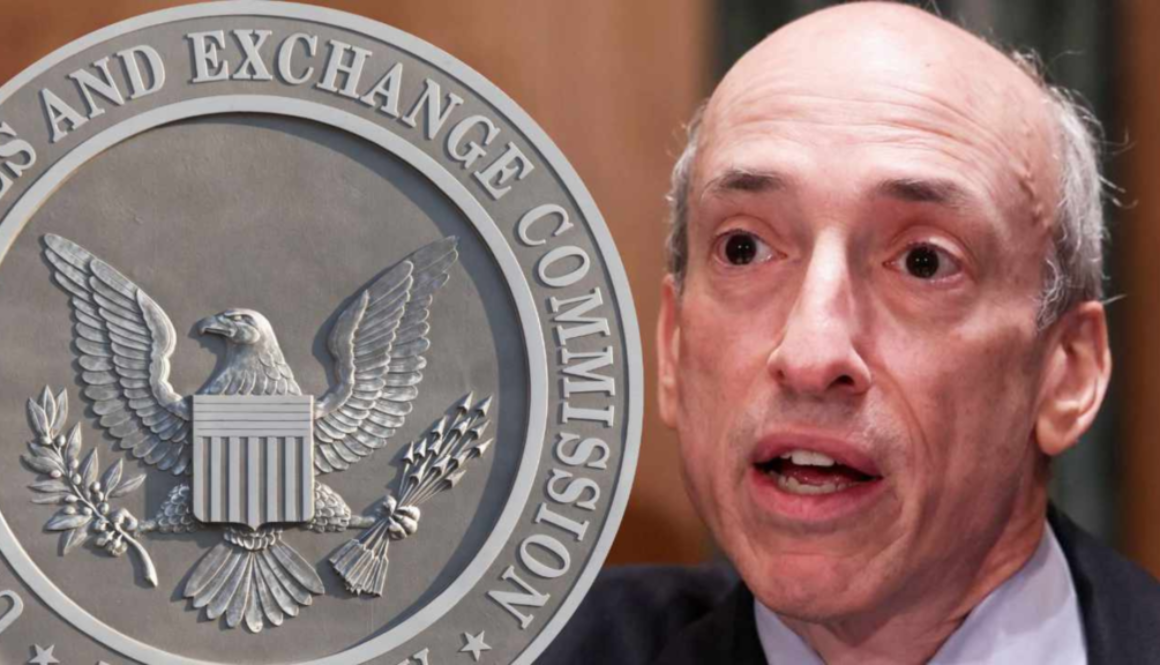Bitcoin ETFs
Bitcoin ETFs, or exchange-traded funds, track the price of Bitcoin and can be traded on traditional stock exchanges. Their purpose is to provide a regulated, accessible route for mainstream investors into the cryptocurrency market.
Much like traditional ETFs, Bitcoin ETFs allow investors to gain exposure to Bitcoin without the need to directly buy and store the cryptocurrency. This bypasses the need to navigate complex, unregulated cryptocurrency exchanges, simplifying the investment process for mainstream investors.
The introduction of Bitcoin ETFs is anticipated to draw institutional investors who may have been wary of the cryptocurrency market’s volatility and lack of regulation. By offering a regulated investment vehicle, these investors can gain exposure to Bitcoin within established investment frameworks.
Moreover, the introduction of Bitcoin ETFs is likely to improve the overall perception and legitimacy of cryptocurrencies. Regulated financial products, like ETFs, are seen as more secure and trustworthy by the investing community, enhancing the appeal of cryptocurrencies to a broader audience.
In summary, Bitcoin ETFs offer a regulated, accessible method for mainstream investors to enter the cryptocurrency market. Their introduction is predicted to attract institutional investors, thereby improving the overall perception and legitimacy of cryptocurrencies.
Overview of regulatory approval process
The regulatory approval process is vital for ensuring the safety and efficacy of diverse products and services. It involves a series of assessments and tests by regulatory authorities to confirm if a product or service meets the necessary standards and regulations before public availability. This process applies not only to pharmaceuticals and medical devices but also to industries like food and beverages, cosmetics, and technology. The primary aim of regulatory approval is to protect consumers from potentially harmful or ineffective products, whilst also ensuring fair competition and promoting industry transparency. Throughout this process, companies must provide detailed data, conduct clinical trials if needed, and adhere to strict guidelines set by regulatory agencies. The path to regulatory approval can be challenging and time-consuming, involving collaborations between scientists, researchers, legal experts, and regulators. However, it is a necessary step to ensure the safety and quality of products and services across various industries.
Role of Regulatory Approvals in Financial Markets
Regulatory approvals are crucial in financial markets, ensuring investment products and services meet certain standards and comply with legal requirements. This is particularly true for Bitcoin exchange-traded funds (ETFs), where approval from the Securities and Exchange Commission (SEC) is significant.
SEC approval is vital for legitimising and mainstreaming Bitcoin. An ETF allows investors to gain exposure to Bitcoin without direct ownership or handling of the digital currency, simplifying the investment process. This makes it more accessible to retail investors, who may not be familiar with cryptocurrencies.
Regulatory approvals boost investor confidence and alleviate fears associated with investing in cryptocurrencies. The SEC’s rigorous vetting process examines the ETF’s structure, custodial arrangements, and trading mechanisms. By approving a Bitcoin ETF, the SEC indicates that the product meets minimum standards and offers some market protection, instilling confidence among investors.
The impact of different countries’ regulatory approaches on the global Bitcoin market is significant. Countries with clear regulations and supportive frameworks tend to attract more investment and stimulate industry innovation. In contrast, countries with strict or uncertain regulations can deter investment and stifle the Bitcoin market’s growth.
In conclusion, regulatory approvals are vital in financial markets, acting as an essential safeguard for investors. Specifically, SEC approval of Bitcoin ETFs boosts confidence and alleviates fears associated with investing in cryptocurrencies. The regulatory approach of different countries significantly influences the global Bitcoin market and its associated investment vehicles.
Impact on investor confidence
The introduction of a Bitcoin ETF is likely to significantly boost investor confidence in the market. The profound influence such an ETF can have on investor sentiment and behaviour is clear.
The launch of a Bitcoin ETF would act as a symbol of market maturity and legitimacy, attracting potential investors. Currently, Bitcoin is seen mainly as a speculative asset, with many institutional investors cautious due to its unregulated status. However, an ETF would bring much-needed regulation and oversight, making it more appealing to these investors. This enhanced credibility could positively influence investor sentiment and foster greater confidence in the market.
Moreover, the introduction of a Bitcoin ETF could encourage increased investor participation. The complexity and security issues linked with direct cryptocurrency investment deter many; however, an ETF provides exposure to Bitcoin without the need for direct holding or storage of digital assets. This convenience, along with reduced risk, could draw more investors into the market, further boosting investor confidence.
However, it’s vital to remember that this impact on investor confidence can go both ways: while a successful Bitcoin ETF launch can uplift sentiment and behaviour, any negative news or incidents associated with the ETF could also cause harm. Therefore, regulators and issuers must enforce stringent oversight and risk management measures to mitigate potential adverse effects on investor confidence.
In summary: A Bitcoin ETF launch can positively shape investor sentiment by infusing legitimacy into the market and offering convenience for participants. However, only if proper safeguards are upheld by regulators and issuers can long-term stability be ensured.
Influence on institutional investors’ participation in crypto markets
In recent years, the world of cryptocurrencies has surged in popularity, as individuals and institutions alike aim to capitalise on the potential for high returns and the decentralised nature of these digital assets. While individual investors have long been active in the crypto markets, the arrival of institutional investors could significantly impact this sector. This article will explore the factors that influence institutional investors’ involvement in crypto markets, including regulatory clarity, market infrastructure, risk management practices, and the overall perception of cryptocurrencies as an asset class. By investigating these factors, we can better understand how institutional investors are navigating the cryptocurrency landscape and the potential implications for the future growth and development of this emerging asset class.
Green Light for Retail Investors
The approval of Bitcoin ETFs has sparked increasing interest among retail investors. The possibility of a regulated investment vehicle has simplified access to the cryptocurrency market, leading to a surge in interest as more investors see the potential of gaining exposure to Bitcoin through an ETF.
However, retail investors are approaching this new opportunity cautiously. The volatile nature of cryptocurrencies has made many wary of investing a significant portion of their portfolio in Bitcoin ETFs. They recognise that high returns could come with significant losses.
When deciding to invest in Bitcoin ETFs, retail investors consider the level of regulation and oversight of the ETF, the credibility of the issuing party, and the associated fees. They want to ensure their investment is backed by a reputable institution and that they are not being charged excessive fees.
Social media discussions have significantly shaped retail investors’ outlook on Bitcoin ETFs. Platforms like Twitter and Reddit have become hubs for discussing investment strategies and sharing insights. The performance of Bitcoin futures ETFs has also influenced perceptions of the potential returns and risks associated with Bitcoin ETFs.
In conclusion, the approval of Bitcoin ETFs has resulted in growing interest among retail investors, but with a cautious approach. They are carefully considering various factors and monitoring social media discussions to shape their investment decisions.
Accessibility to a new financial product
Accessibility to a new financial product pertains to the ease and opportunity for individuals to use and benefit from said product. Availability is a crucial factor in determining accessibility. Financial institutions often offer new products, like loans, credit cards, or investment opportunities, to a large population segment. However, eligibility criteria may restrict access for some individuals.
Eligibility criteria for financial products vary. For instance, to qualify for a personal loan, individuals might need to show a certain credit score, income level, and employment history. Similarly, accessing a high-interest savings account may require meeting a minimum deposit requirement. These criteria ensure that those who can responsibly manage the financial product can access it, reducing risk for both the consumer and the financial institution.
Potential barriers can obstruct accessibility to new financial products. A significant barrier is lack of financial literacy. Misunderstanding product features, terms, and concepts may deter individuals from accessing new financial products. Moreover, language barriers, technological limitations, and lack of awareness can also hinder accessibility.
To access a new financial product, individuals usually need to provide documentation and complete application procedures. This may involve submitting identification documents, proof of address, and income verification. Some financial products may require additional documentation specific to their requirements.
In summary, accessibility to a new financial product depends on its availability, eligibility criteria, and potential barriers. Individuals can access these products by meeting the specified eligibility criteria, providing necessary documentation, and completing relevant application procedures. By addressing potential barriers and enhancing financial literacy, financial institutions can increase the accessibility of new financial products to a broader audience.
Potential for increased retail investment in digital assets
In recent years, the rise of digital assets has revolutionized the way we perceive and engage with investments. With advancements in technology and the increasing acceptance of cryptocurrencies, the potential for increased retail investment in digital assets has skyrocketed. This new and exciting realm of investing offers individuals an opportunity to diversify their portfolios, tap into an emerging market, and potentially gain significant returns. As more people become aware of the possibilities and benefits associated with digital assets, we can expect to witness a surge in retail investment, making it imperative to explore the potential that lies within this burgeoning industry.
Institutional Investors’ Perspective
In recent years, digital assets have revolutionised our approach to investments. Technological advancements and the increasing acceptance of cryptocurrencies have greatly expanded the potential for retail investment in digital assets. This innovative investment realm allows individuals to diversify their portfolios, enter an emerging market, and possibly achieve substantial returns. As more people become aware of the opportunities and benefits of digital assets, we expect a surge in retail investment. This underscores the importance of exploring the potential within this burgeoning industry.
The potential launch of a Bitcoin ETF is considered by institutional investors, with several influencing factors. Firstly, regulatory developments are vital in shaping their stance. Institutional investors are cautious and demand clear regulations surrounding cryptocurrencies, as this directly affects their decision to invest in a Bitcoin ETF. They need a comprehensive and well-defined set of regulations to ensure investor protection and market integrity.
Market stability is another key factor for institutional investors. They analyse the volatility and liquidity of the Bitcoin market to assess its potential for long-term stability. A highly stable market is deemed favourable for the launch of a Bitcoin ETF, as it lowers the risk associated with investment.
Moreover, institutional investors evaluate the credibility of the ETF provider. Factors such as the provider’s track record, expertise, and financial stability are assessed. Trust in the ETF provider’s ability to manage the ETF effectively and deliver returns in line with market performance is essential for institutional investors.
Institutional investors carefully balance the risks and benefits when considering a Bitcoin ETF. Liquidity is a significant concern as it affects the ease of buying and selling shares. They also assess the overall regulatory climate, examining any potential changes that may impact the performance of the Bitcoin ETF and their ability to exit investments in a regulated manner.
In conclusion, institutional investors approach the potential launch of a Bitcoin ETF by considering regulatory developments, market stability, and the credibility of the ETF provider. They carefully balance the risks and benefits, including liquidity and the overall regulatory climate, to make informed investment decisions.
Requirement for regulatory approval for compliance purposes
Regulatory approval for compliance is a key aspect of the global cryptocurrency and Bitcoin ETF market. The regulatory landscape for these digital assets varies greatly across different countries.
In recent years, some countries have proactively approved the launch of Bitcoin ETFs, recognising the potential benefits of offering investors regulated exposure to Bitcoin, such as increased market liquidity and improved investor protection. The approval of Bitcoin ETFs in these jurisdictions has helped legitimise cryptocurrencies as a financial instrument and attract institutional investors.
However, other countries have adopted a more cautious or restrictive stance towards cryptocurrencies and Bitcoin ETFs, concerned about potential risks like market manipulation, money laundering, and investor fraud. Consequently, they have stricter regulatory requirements and may not have approved the launch of Bitcoin ETFs.
These differing regulatory approaches worldwide significantly impact the global Bitcoin market. Countries that have approved Bitcoin ETFs provide a more regulated and secure environment for investors, which can boost confidence and promote cryptocurrency adoption. In contrast, countries with stricter regulations may restrict market access and hinder the global Bitcoin market’s growth.
In conclusion, regulatory approval for compliance is a critical requirement in the cryptocurrency and Bitcoin ETF world. The varying approaches taken by countries globally significantly affect the growth and development of the global Bitcoin market.
Significance of legitimacy in the eyes of institutional investors
Legitimacy is of immense importance to institutional investors, serving as a critical factor in their decision-making process. Entities such as pension funds, insurance companies, and endowments, which allocate substantial capital to various investment opportunities, carefully assess the legitimacy of the entities they consider investing in before committing their funds. Legitimacy validates an organisation’s credibility, reputation, and adherence to regulations, giving investors confidence in their investment choices. This article explores the significance of legitimacy to institutional investors and how it influences their investment decisions. By examining the various dimensions of legitimacy and its impact on investor behaviour, we can gain deeper insights into the factors that drive institutional investment choices and ultimately shape the financial landscape.
Heading: Importance of Transparency and Disclosure
Legitimacy plays a pivotal role in determining the extent to which institutional investors value transparency and disclosure from the companies they invest in. Institutional investors seek transparency as it allows them to assess the true financial health, risks, and opportunities of an investment. By demanding comprehensive and accurate information, these investors can make more informed decisions and mitigate potential risks. Legitimate companies understand this need and willingly provide thorough disclosures, thereby bolstering their reputation and trustworthiness. By upholding high standards of transparency and disclosure, companies can attract institutional investors who prioritise legitimacy, creating a positive cycle of credibility and enhanced investment opportunities.
Crypto Enthusiasts and Market Growth
The crypto market has seen significant growth in recent years, attracting many enthusiasts drawn to the potential of digital assets. This rise in popularity can be attributed to several factors, including greater awareness and acceptance of cryptocurrencies, and the potential for high returns on investments.
A key development contributing to this growth is the approval of Bitcoin exchange-traded funds (ETFs) by the Securities and Exchange Commission (SEC). This landmark decision has allowed a broader range of investors to participate, as ETFs offer a more accessible and regulated way to invest in Bitcoin.
Following the approval of Bitcoin ETFs, there has been a marked increase in investment and adoption of digital assets. Investors, previously wary of the crypto market’s volatile nature, now have a safer and more convenient option to invest in Bitcoin. This has led to a surge of funds into the market, increasing liquidity and promoting further growth.
Furthermore, the entry of mainstream financial institutions into the crypto industry has significantly influenced the market. Institutions such as banks and asset management firms have started offering cryptocurrency-related products and services, attracting both professional wealth managers and amateur traders. This has not only added credibility to the crypto market but also provided a sense of security to potential investors.
In conclusion, the growth of the crypto market and the approval of Bitcoin ETFs by the SEC have significantly impacted crypto enthusiasts. Investment and adoption of digital assets have increased due to the availability of regulated investment options, while the involvement of mainstream financial institutions has attracted a broader range of investors. This growth trend signifies the increasing integration of cryptocurrencies into the mainstream financial system.
Boosting confidence among crypto enthusiasts and early adopters
Boosting confidence among crypto enthusiasts and early adopters is crucial for the cryptocurrency industry’s growth and stability. These individuals are the first to embrace the potential of cryptocurrencies, and their trust in the technology significantly impacts its overall perception.
Achieving this involves enhancing trust and transparency in the crypto space. Transparency is essential to build investor and user trust. Companies and exchanges should provide clear, accurate information about their operations, security measures, and financial status to alleviate concerns about potential scams or fraudulent activities. Regular financial audits and public disclosures of key information can achieve this.
Regulatory measures also play a significant role in enhancing confidence. Regulatory bodies should establish clear guidelines and standards for the cryptocurrency industry, creating a legal framework that protects consumers and discourages illicit activities. Implementing strict anti-money laundering and know-your-customer procedures can help prevent fraud and illicit cryptocurrency use.
Risk disclosure is another crucial aspect of boosting confidence. Educating the public about cryptocurrency-associated risks is essential to prevent uninformed investments and subsequent losses. Companies and exchanges should provide clear risk disclosures, highlighting market volatility and the potential for financial loss.
In conclusion, boosting confidence among crypto enthusiasts and early adopters is vital for the cryptocurrency industry’s growth and development. Trust and transparency can be achieved through increased regulatory measures, risk disclosure, and public education about the benefits and risks of cryptocurrencies. These steps will help build a stronger industry foundation, attracting more participants and increasing stability.
Potential for market expansion and mainstream adoption
The potential for Bitcoin’s market expansion and mainstream adoption is considerable, especially with the introduction of a Bitcoin ETF. An ETF, or exchange-traded fund, is a financial product that offers investors exposure to the performance of an underlying asset, such as Bitcoin, without direct ownership.
The Bitcoin ETF’s launch could attract new investors, previously deterred by the cryptocurrency market’s volatility or complexity. Offering a regulated and easily accessible investment avenue, a Bitcoin ETF could provide a level of convenience and familiarity appealing to mainstream investors. This increased participation from institutional and retail investors could boost market liquidity, with more assets flowing into Bitcoin.
However, mainstream adoption and market expansion aren’t solely dependent on a Bitcoin ETF’s launch. Regulatory hurdles are crucial as they dictate whether such financial products can be offered to investors. A Bitcoin ETF’s approval and regulation by regulatory authorities will impact the ease and speed at which it can attract new investors and gain market acceptance.
Additionally, investor sentiment towards Bitcoin and cryptocurrencies overall can affect mainstream adoption levels. Negative sentiment, fuelled by regulatory uncertainty or security concerns, may dissuade investors. Conversely, positive sentiment and increased confidence in Bitcoin’s future prospects could drive adoption and market expansion.
Several factors contribute to the Bitcoin market’s growth beyond a Bitcoin ETF’s launch. Enhanced security measures, such as multi-signature wallets and increased cybersecurity protocols, can boost investor confidence and attract mainstream participation. Further, increased acceptance and adoption by governments, through actions like legalizing Bitcoin as a payment form or allowing regulated exchanges, can also contribute to the Bitcoin market’s expansion.
In conclusion, Bitcoin’s potential for market expansion and mainstream adoption is significant. The launch of a Bitcoin ETF could attract new investors and increase market liquidity. However, regulatory hurdles and investor sentiment towards Bitcoin can heavily influence adoption levels. Factors like improved security measures and increased government acceptance also contribute to the Bitcoin market’s growth.




